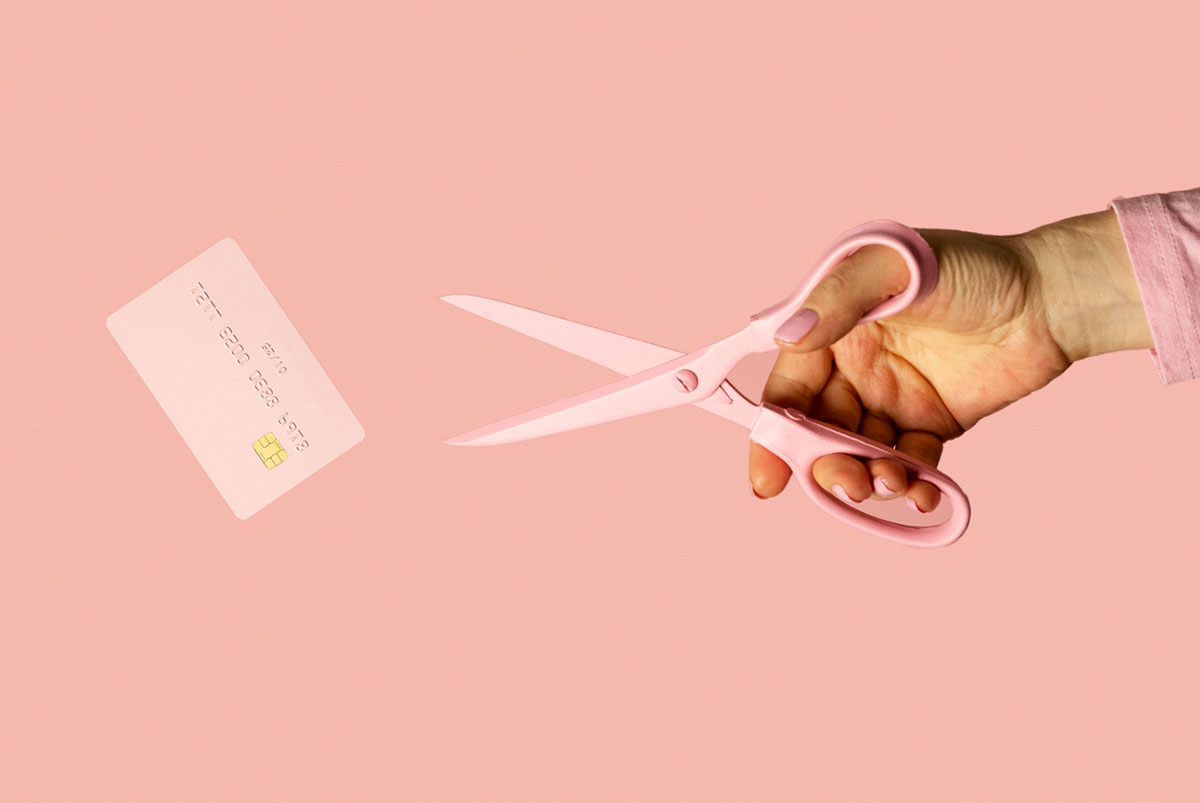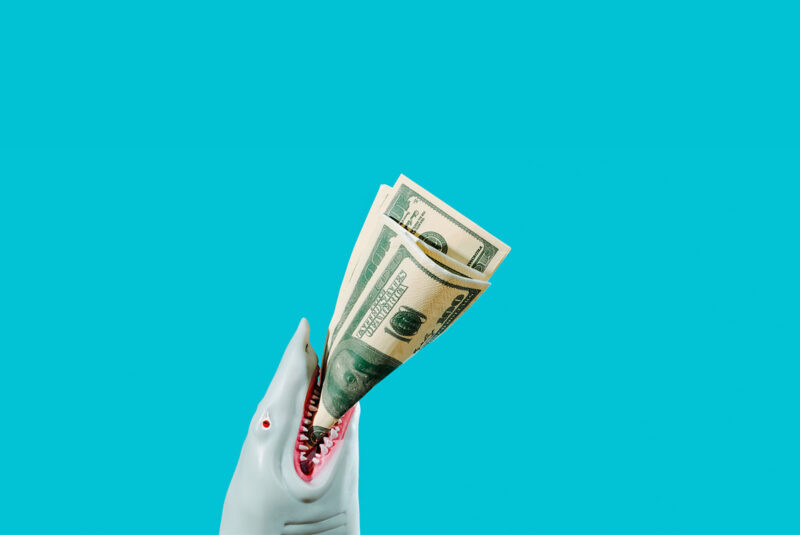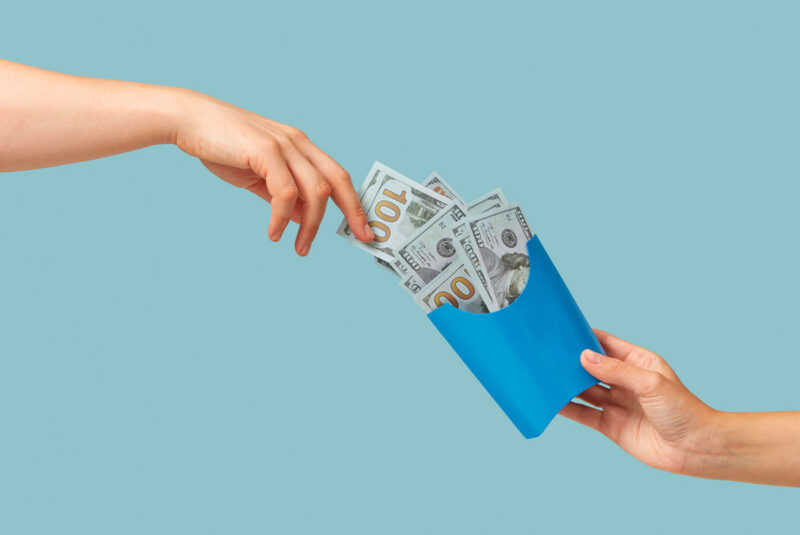Explore your mortgage options
Credit card debt can quickly spiral out of control. If you’re looking for ways to help dig yourself out, you’re not alone. Personal loans are a frequently floated tool when discussing ways to get out of this hole. But are they actually a good idea?
In this article, we’ll talk through the pros and cons of using a personal loan to pay off credit card debt. We’ll outline the scenarios when it makes the most sense and provide some alternative methods for you to consider.
Struggling With Credit Card Debt?
A personal loan from Rocket LoansSM can put you back in control. Loan options range from $2,000 – $45,000.
Is Getting a Personal Loan for Credit Card Debt a Good Idea?
Yes, you can use a personal loan to pay off your credit card debt. But should you? Here’s a list of pros and cons of the practice.
Pros
- Lower interest rates: Generally, personal loans have lower interest rates than credit cards.
- Debt consolidation: If you have debt with multiple credit cards, that translates into multiple monthly payments. Using a personal loan to pay off the debt can consolidate things into one monthly payment, simplifying your finances.
- Fixed monthly payments: If you get a fixed-rate personal loan, your monthly payment will not change over the loan term. This allows for predictable budgeting when forecasting your expenses.
- Potential increase to your credit score: Using a personal loan to pay off your credit card completely could actually increase your credit score by improving your credit utilization percentage.
Cons
- Potential for more debt: Taking out a loan to pay off your credit card is trading out one type of debt for another. If you don’t address the underlying issues that got you into debt, you could find yourself back in credit card debt with a personal loan on top of it.
- Lender fees: There are fees associated with taking out a personal loan. That means there will be an upfront cost to borrowing the money that you should account for.
- You need to qualify: There are credit score and debt-to-income (DTI) ratio requirements to get a personal loan. If you don’t meet them, you can be charged higher interest rates or the lender may refuse to issue you the loan.
When To Consider a Personal Loan for Credit Card Debt
There are situations where using a personal loan can be more helpful than others. Here are some credit card debt scenarios that at least warrant considering a personal loan.
You have high-interest credit cards
If you have high-interest credit card debt, the chances are good that a personal loan will offer a lower interest rate than your current debt.
Even if you cut your spending and improve your financial habits, switching over to a personal loan could reduce what you pay in interest over time.
You have debt on multiple credit cards
It can be overwhelming to juggle different minimum payment amounts and different payment deadlines for multiple credit cards. When you’re in this situation, you might also find yourself tempted to run up one credit card to pay off others.
Using a personal loan can help you consolidate multiple debt payments into one monthly payment due at the same time every month for the same amount.
You have a good credit score
If you have an excellent credit score, you could qualify for the best personal loan terms that a lender has to offer. Even if your score is just “good,” you still might qualify for favorable terms that put you ahead of where you would be by keeping your credit card debt.
Ready To Reduce Your Existing Debt?
A debt consolidation loan from Rocket LoansSM can be the game-changer in making that possible. Take back control of your existing debt.
Checking your options won’t affect your credit score.
How To Pay Off Credit Card Debt with a Personal Loan
If you think paying off credit card debt with a personal loan makes sense for your situation, here’s how to go about the process of doing so.
- Assess your finances: You can usually get between $2,000 – $45,000 through a personal loan. Make sure that you’ll be able to cover your debt with what you take out. You’ll also want to review your credit score and DTI ratio to make sure you can qualify for a personal loan.
- Shop lenders: Many different lenders offer personal loans. Take the time to talk to them and get an understanding of what the different offers are. Annual percentage rate (APR) is a metric that combines interest rates with lender fees to calculate the total cost of borrowing money. Compare the APRs on personal loan options from the different lenders you speak with. Make sure to also ask if they have any promotional offers available.
- Apply for the loan: Once you decide on a lender, you’ll need to apply for the loan. Supporting paperwork can include things like a W-2, bank statements, tax returns, proof of identity and proof of address. Make sure to get the lender whatever they ask for in a timely fashion to expedite the application review.
- Pay off your credit card(s): If the lender approves your application, they’ll transfer the funds to you in a lump sum. From application to transfer, the entire process can happen quite fast, sometimes in as little as one business day. Once you receive the funds, make sure to use the money to pay off your credit card debt.
- Change your credit card spending habits: If you don’t address your spending habits, you’ll end up running up your credit card again – except you’ll be worse off because you’ll have to make payments on a loan on top of it. Make using credit cards responsibly a priority.
- Repay the personal loan: Don’t forget that you’ll need to repay the loan. When your repayment starts will depend on the loan terms with your lender, but make sure that you understand your monthly payment and all of the fine print regarding repayment (such as early payment penalties and so forth) before accepting the loan. Failure to make your payments can come with serious negative repercussions.
Alternative Ways To Get Out of Credit Card Debt
A personal loan isn’t the only way to escape credit card debt. If you’re having trouble qualifying, or if you don’t think it’s the right move for your situation, here are some alternatives to consider:
Change your financial habits (or circumstances)
Cutting spending is a tried and true way to get out of debt. It’s easier said than done, but decreasing your monthly spending can free up more to put down on your credit card each month.
Increasing your income is another viable path, and the best-case scenario would be to increase your income while decreasing your spending. Maybe there’s a new job you’ve been thinking about applying for, or it’s time to ask for a raise. Changing your financial circumstances could give you an opportunity to get out of debt without taking out a loan.
If you are considering this path, the avalanche method can be effective for those looking to pay off multiple credit cards.
Use a balance transfer credit card
Using a balance transfer card means transferring your outstanding credit card balance to one card in the hopes of saving money on interest.
This method can be particularly powerful when paired with 0% APR introductory periods offered by some cards. Effectively, this gives you a promotional window – usually six months to a year – during which time you can pay off the balance without paying any fees or interest on the debt.
Consider a debt management plan
Non-profit credit counseling agencies can help you with a debt management plan (DMP). If you opt for this method, a credit counselor will review your spending and credit history to help you come up with a plan to get out of debt. They’re also empowered to negotiate repayment plans with your creditors.
The National Foundation for Credit Counseling is a great resource for finding an agency to help you.
Final Thoughts On Using Personal Loans To Pay Off Credit Card Debt
Taking out a personal loan can be a strong step toward getting out of credit card debt, but it doesn’t come without risks. Make sure to talk through the loan details with your lender before applying. Understand what you’re committing to and make sure you have a plan to stay out of credit card debt after you use the loan to pay it off.
See What You Prequalify For
Get prequalified offers for personal loans from Rocket LoansSM within seconds. Like what you see? Same-day funding is available.
Checking your options won’t affect your credit score.
The Short Version
- Lower interest rates, debt consolidation and improvements to your credit score are potential benefits of using a personal loan to pay off credit card debt
- You should consider this method if you have high-interest credit card debt, debt on multiple credit cards or if you have a good credit score
- Alternative ways to approach credit card debt are changing your financial circumstances, considering a balance transfer card or debt management plans




